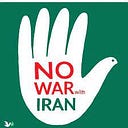Five Times Denial is Good for You
Being in denial has a bad rap, as this pic illustrates. You want someone to change, but they don’t admit they have a problem. There must be something wrong with them.
Is denial really such a bad thing, though? Well, if you deny a self-destructive habit, you could cause serious harm to yourself or others. Drunk driving would be a classic example. But in other situations, denial can be good for you.
When is denial damaging and when is it healthy? What is denial and what is just a different way of seeing a life? Say a person has diabetes, but continues to eat several donuts a day and won’t check their blood sugar. Are they in denial?
Not usually. As a diabetes educator, I’ve almost never met a patient who says, “I don’t believe I have diabetes.” Or “Diabetes can’t hurt me.” Usually, what seems like denial is a defense against terror. Faced with fears of complications and death and a care plan that seems too hard to maintain, they choose to ignore that part of their lives and focus on more positive things.
What separates damaging from useful denial is, ‘can we do something about this situation now, or not? Can we handle this?’
This is not usually a conscious decision. When we can change our situation, we need to get past denial, but when loss or fear is too much to bear, our bodies and minds may deny them for a while.
Here are five ways in which denial can be good.
- When you’ve suffered loss or trauma, denial buys you time. Dr. David Kessler, who wrote two books on grief with the fabled psychiatrist Dr. Elisabeth Kubler-Ross, says, “Denial and shock help us to cope and make survival possible. There is a grace in denial… It is nature’s way of letting in only as much as we can handle. It helps us pace our grief.”
- Denial allows you to keep going. Sometimes, other people are depending on you. You have work you really need to do, art to create, battles to fight, love to share. Denial can let you focus on tasks at hand, instead of realities you cannot change.
- Denial keeps you out of depression, and depression feels terrible, cripples your life and your relationships. It’s as disabling as any physical illness. So, if I am depressed about, say, having a rapidly progressing chronic illness, or catastrophic climate change, it may do me good to forget about it for a while and focus on the things I can change.
- Denial can help you stay in the moment. By ignoring, forgetting or disbelieving painful things that happened, or frightening things that may happen, you are freed to experience the present moment and live it to the fullest.
- Denial is way better than running around doing a lot of stupid things trying to avoid what’s coming. Given a terminal diagnosis, would your remaining time be better spent chasing after a series of expensive quack therapies, or healing relationships with your family and friends, having fun, or creating an album of memories for you and your descendants?
Note, of course, that there may be real therapies out there, and you will miss those, too. Denial can go too far. For most people, though, if a real, effective therapy were available to them, they wouldn’t be in denial in the first place.
I go into denial sometimes. You probably do, too, even if you don’t notice it. The poverty and decay in our city streets forces us to ignore some reality just to walk down the block. We pretend we don’t notice.
The overwhelming threat of our world’s destruction by global warming can put a layer of fear over every waking hour. Sometimes we need to put that fear down and live.
Denial can be a choice. A few years ago, I read some articles by global warming skeptics and made the conscious decision to believe them. Things weren’t as bad as I had thought!. There was still time! Denial significantly improved my mood and my ability to function, without compromising my activism or advocacy. Unfortunately, as with a drinking problem or a terminal cancer diagnosis, reality kept creeping in, and I had to admit the skeptics were wrong.
If you’d like to spend some time in denial, I would advise not following news or social media. The news wallows in the worst of the modern world, and it’s mostly lies designed to frighten and disempower us. Turn it off.
If your social media feeds runs to cute cats and family reunions, that won’t hurt you. But if your friends are all about social and ecological disaster, they will drag you into their reality.
If you want to come out of denial, the key is developing the belief that you can cope. If you believe that you can do something about the problem; that you can handle what life is throwing at you; or that you can rise above it, you won’t need to deny it. Talking with others about your grief and fear can give you support that helps you move past denial.
What I ask is, acknowledge that denial is a valid coping mechanism for yourself and for others. Don’t blame them or yourself for it. Loss and threat, grief and fear are part of life, and denial is one crucial way our bodyminds deal with them.
Even if the problem is a behavior they really could change, it’s better to focus on the behavior, not the denial. When a friend wants to drive drunk, is it more important that they admit they have a problem, or to get their keys away from them? They’ll come out of denial when the time is right.
